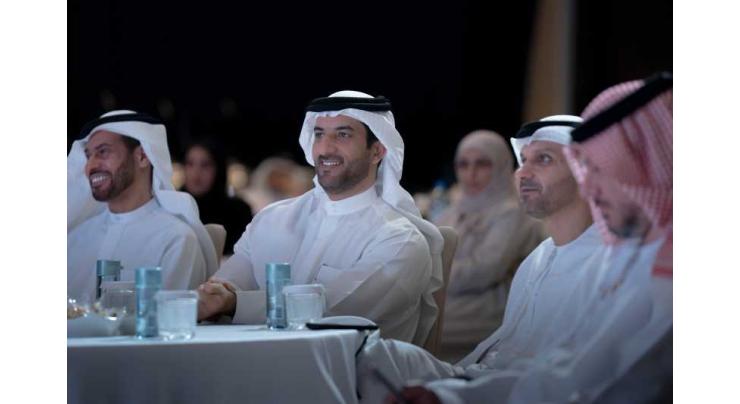
Sharjah Judicial Council Discusses 2026–2028 Strategic Plan
Muhammad Irfan Published October 01, 2025 | 06:45 PM

SHARJAH, (UrduPoint / Pakistan Point News / WAM - 01st Oct, 2025) H.H. Sheikh Sultan bin Ahmed bin Sultan Al Qasimi, Deputy Ruler of Sharjah and Chairman of the Judicial Council attended a session held by the Sharjah Judicial Council on Wednesday at Al Jawaher Reception and Convention Centre, where discussions focused on the Council’s 2026–2028 strategic plan.
The session explored several core themes of the strategic plan, guided by the overarching directives of His Highness Sheikh Dr. Sultan bin Mohammed Al Qasimi, Supreme Council Member and Ruler of Sharjah. These directives aim to reinforce key pillars such as justice, security, family, and social stability, ensuring a safe and equitable environment for all members of society.
The discussion also included a review of international judicial models and best practices, alongside the UAE’s national strategies and local implementation plans.
Attendees reviewed the strategic plan’s general framework, including its vision, mission, and core institutional values, along with the main themes supporting the proposed strategy. The discussion focused on identifying effective methods and approaches to help judicial bodies achieve their goals, ultimately aiming to establish a pioneering judicial system and uphold the rule of law.
The strategic plan outlined several Primary and supporting themes, including the promotion of judicial independence and a firm commitment to the values of integrity, credibility, and impartiality. It also focused on building capabilities and advancing the overall judicial system. In addition, the plan addressed key drivers of change aimed at strengthening public trust in justice, delivering seamless digital services to clients, and enhancing integration, efficiency, and governance across legal and judicial institutions.
Several supporting themes were also explored, including the use of artificial intelligence and emerging technologies in judicial processes, the pursuit of excellence and global leadership, readiness and data-driven decision-making, capacity building for national talent, enhancing the quality of the work environment, and improving global competitiveness indicators. Additional focus areas included innovation, agility, institutional development, and future foresight.
Recent Stories

PML-N committed to advancing Pakistan’s progress: Tariq Fazal

Four shot dead in Haveliyaan

Governor Sindh Kamran Tessori, Chinese CG visit Industrial Park

11 injured near Rawalpindi road accident

Sindh Chief Minister Syed Murad Ali Shah chairs meeting on wheat support program ..

Acting President Gilani briefed on political and law & order Situation in KP

Govt stands with flood victims; peace top priority: Amir Muqam

One killed, six injured in Mohmand accident

Acting President Gilani visits Peshawar, briefed on political, law & order situa ..

Balochistan has vital role in Pakistan’s economic development, prosperity: Bal ..

Rs3.65m released for medical expenses of injured police Ghazis

Over 14,804 citizens benefited from Khidmat Marakaz services in 24 hours
More Stories From Middle East
-
Austria inflation eases to 4% in September
1 hour ago -
Abu Dhabi Chamber, BCIU host family business roundtable in New York
3 hours ago -
Ahmed bin Saeed inaugurates 11th edition of World Green Economy Summit in Dubai
4 hours ago -
Theyab bin Mohamed bin Zayed tours Global Rail 2025
4 hours ago -
UAE possesses key elements to lead new clean energy-AI era: EPRI CEO
4 hours ago -
Saeed Al Hajeri underscores UAE commitment to stability, economic growth at BRICS Foreign Ministers� ..
6 hours ago
-
UAE President, Iraqi Prime Minister discuss bilateral ties, regional developments
6 hours ago -
ECI highlights its role as catalyst in enhancing trade, investment opportunities between UAE and Afr ..
6 hours ago -
Passenger demand grows 4.6% in August: IATA
6 hours ago -
Abu Dhabi to host ADIPEC 2025 on November 3
7 hours ago -
Saud bin Saqr witnesses launch of autonomous bus trial in Ras Al Khaimah
7 hours ago -
Theyab bin Mohamed bin Zayed attends ACTVET 2025 graduation ceremony for top achievers
7 hours ago